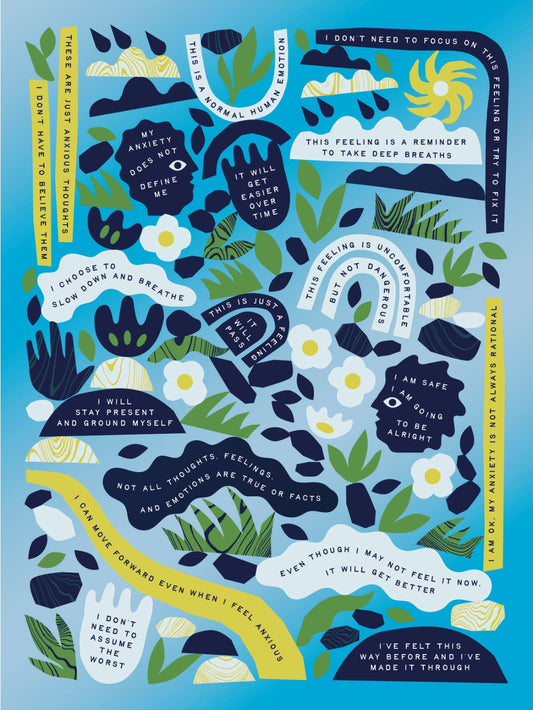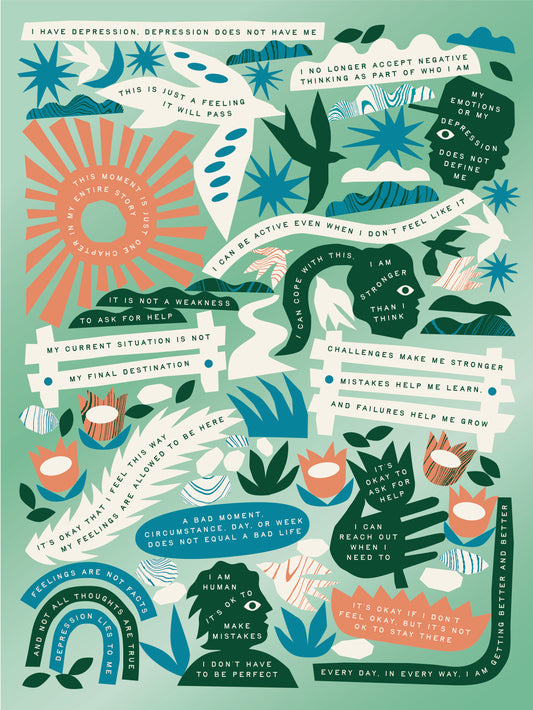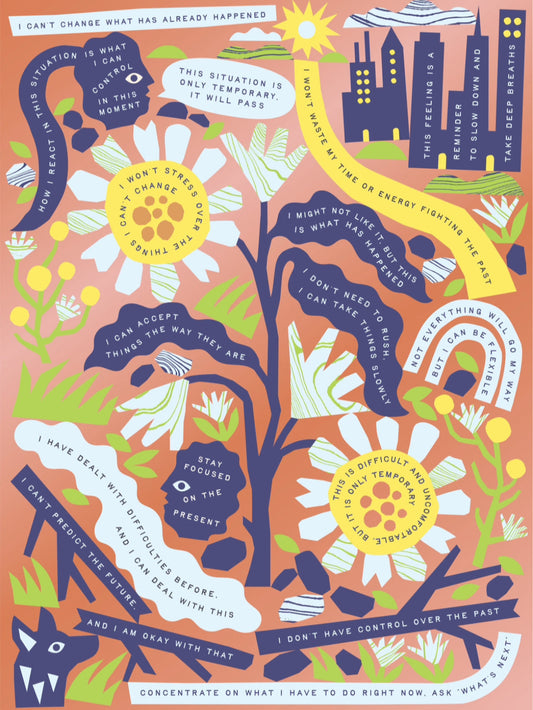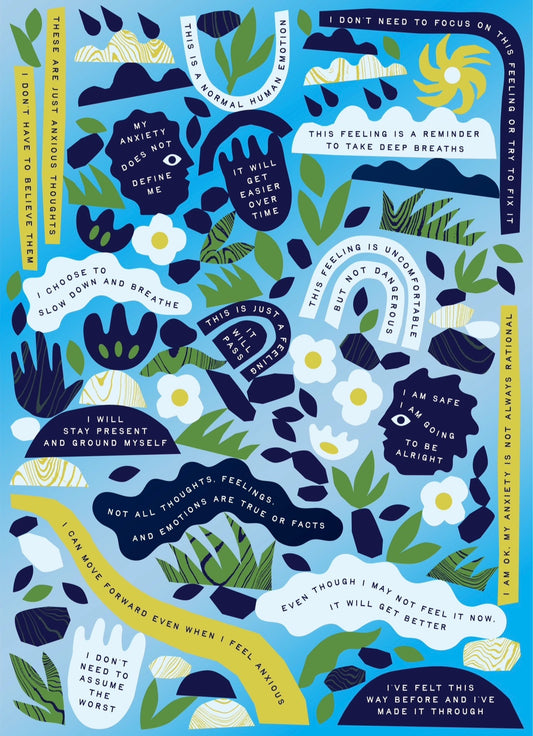THE CHRISTMAS SALE IS ON! ALL PUZZLES ARE 25% OFF! WAS $29.95 NOW JUST $22.50 No code needed!!!
SHIPPING NOTICE: ORDER TODAY TO GET THEM IN TIME FOR CHRISTMAS!
DO YOU, OR SOMEONE YOU KNOW DEAL WITH THE CALLENGES OF ANXIETY AND/OR DEPRESSION? I CERTAINLY DO ...
I understand how difficult it can be to navigate through the feelings, thoughts, and emotions that come with anxiety and depression. It was through my own struggles that I developed these beautiful and therapeutic puzzles. They have helped me and I trust they will also serve you on your healing journey.
Experience the calming benefits of therapuzzle - high-quality puzzles paired with thoughtful prompts for reflection. Perfect for relaxation and mindfulness. START YOUR HEALING JOURNEY TODAY BY PURCHASING ONE OF THESE PUZZLES, OR GET THE BUNDLE OF ALL THREE!
-
Anxiety Coping Statements Puzzle
Regular price $22.50 USDRegular price$29.95 USDSale price $22.50 USDSale -
Depression Coping Statements Puzzle
Regular price $22.50 USDRegular price$29.95 USDSale price $22.50 USDSale -
Grounding Statements Puzzle
Regular price $22.50 USDRegular price$29.95 USDSale price $22.50 USDSale -
Mindfulness Puzzle Bundle
Regular price $60.00 USDRegular price$89.85 USDSale price $60.00 USDSale
My Puzzle Story
On January 1st, 2022, my life changed forever. I was confronted by my employer with the painful truth that I had taken money from my workplace. The accusation was true, and I was immediately fired from my executive leadership position. It was a devastating moment—one that brought me to the lowest point I had ever known.
After the initial shock and with the support of trusted counsel, I made the difficult but necessary decision to seek help. I entered an inpatient residential treatment facility to address my process addiction, dissociative disorder, anxiety, depression, and unresolved trauma.
On January 10th, just nine blurred and chaotic days after losing my job, I checked into a 90-day program. The first few days at the center were overwhelming. I felt completely disoriented—unable to form clear thoughts, hopeless, and emotionally paralyzed. The life I thought I was leading had crumbled into sadness, shame, and severe depression.
The facility housed 16 other men, each facing their own battles. We lived together in a large home, and alone time was rare. But one day, just a few days into treatment, I found myself sitting alone in the living room. On the coffee table in front of me sat a puzzle in a worn, taped-up box.
For reasons I can’t fully explain, I opened the box and dumped the pieces onto the table. Then I just sat and stared at them. In that moment, I felt a deep impression—that God was showing me something. Those scattered pieces represented my life: broken, jumbled, and seemingly without order or meaning.
I looked at the puzzle box and saw myself in it. The box was faded, tattered, and unclear—just like how I felt inside. I quietly gathered the pieces, put them back in the box, and tucked it away in the closet. I thought that was the end of it. But I couldn’t shake the image. That pile of pieces haunted me.
And yet, over the next few days, I started to wonder: what if that puzzle was more than a metaphor? What if it could actually help me process my pain—and begin to rebuild? Maybe I wasn’t meant to solve the whole thing right away, but what if I could start small? Maybe I could find the four corner pieces. Maybe I could begin working on the edges.
Recovery wasn’t going to be quick, or easy. But I believe God gave me that puzzle as a vision of hope. Even though the picture on the box was faded, He would show me what my life was meant to become.
My therapist later told me something that stuck with me: “God might not give you all the pieces at once. But over time, as you’re ready, He will give you the pieces you need.”
That wisdom grounded me. I tend to get fixated on one piece, obsessing over how it fits. But recovery—and life—isn’t about one piece. It’s about the whole picture. And sometimes, the most important part is trusting that the picture is still being formed—even if you can’t see it yet.
What People Are Saying
Putting a puzzle together takes your mind off anything that is troubling, stressing, causing conflict.
The fact that you made it so specific and relatable to so many people makes it that much more fun.
When one sees themselves not only on the pieces but then as they build the puzzle, I can only imagine how seen they must feel.
Henry Winkler








